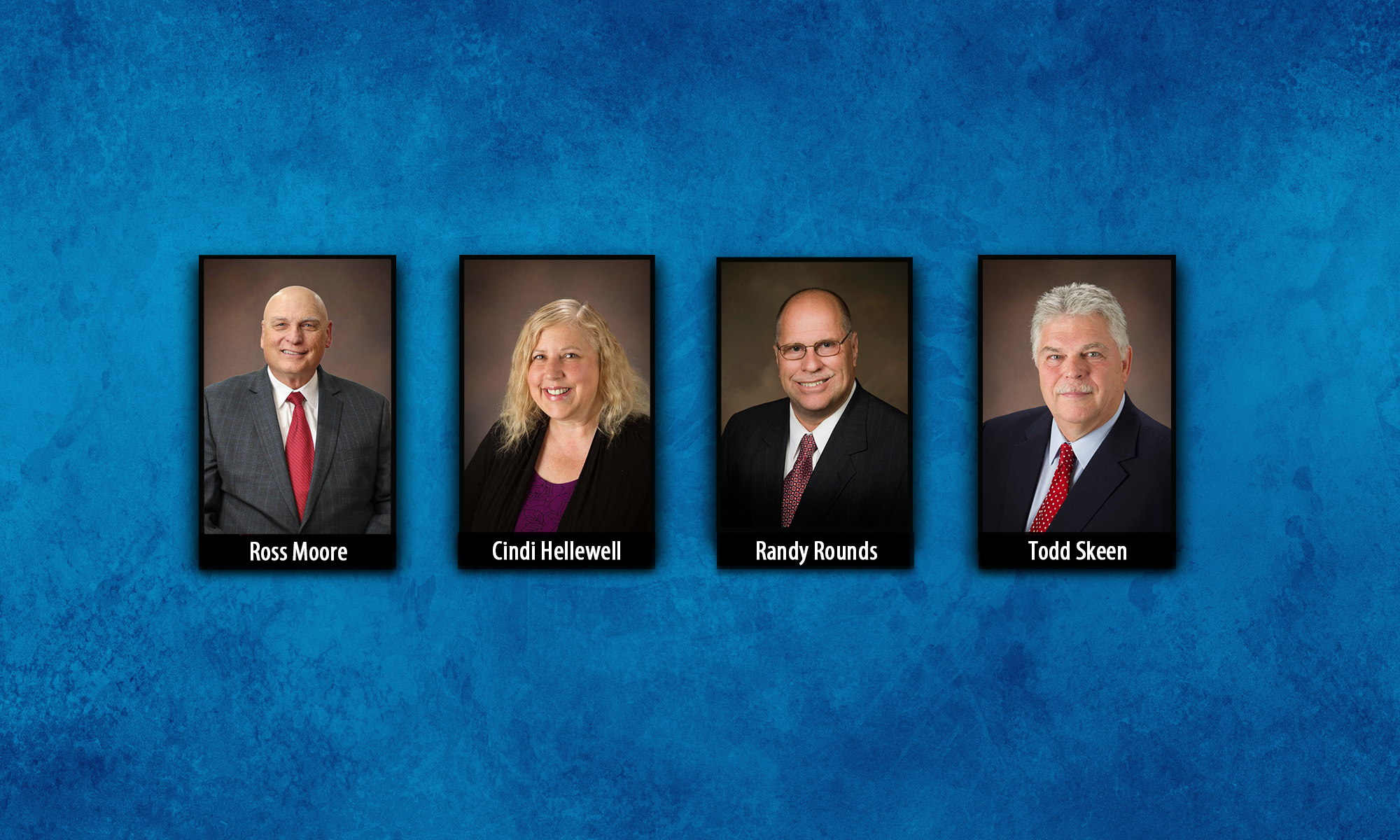Credit cards have become essential to modern life, allowing us to afford necessities we cannot purchase outright. From groceries to medical bills, they provide a way to cover expenses when cash is tight.
However, credit can be a double-edged sword. It's incredibly easy to overspend or rack up high balances that become difficult to pay off. Debt can quickly spiral out of control, while high interest rates make it seem like there’s no way out.
Fortunately, there are many effective strategies for tackling overwhelming account balances. Read on to learn how to quickly pay off credit card debt and regain control of your financial future.
TABLE OF CONTENTS
Click one of the links below to go to that section in the blog post.
- STRATEGIES TO PAY OFF CREDIT CARD DEBT
- ADDITIONAL DEBT REDUCTION TACTICS
- WHAT HAPPENS WHEN YOU PAY OFF YOUR CREDIT CARD?
- WHAT TO DO WITH THE MONEY YOU BUDGETED?
- WHAT HAPPENS TO YOUR CREDIT SCORE?
- HOW TO PREVENT BUILDING HIGH CREDIT CARD BALANCES
- TIPS FOR STAYING ON TRACK
11 STRATEGIES TO PAY OFF CREDIT CARD DEBT
There are several effective ways to tackle credit card debt. They can help you understand how long to pay off your credit card debt and create a plan to achieve financial freedom. Here's a breakdown of some of the most popular ones to consider:
1. DEBT SNOWBALL METHOD
This strategy starts by listing your debts from smallest to largest. Make minimum payments on all your cards while channeling any extra funds towards the smallest balance.
Once you pay off the smallest debt, you'll move on to the next smallest and gain momentum with each victory. The sense of accomplishment from early wins can be incredibly motivating!
- Pros: It provides a sense of accomplishment, which is good for those motivated by seeing progress.
- Cons: It takes longer to pay off high-interest debts.
- Best for: Those focused on quick wins and staying motivated
2. DEBT AVALANCHE METHOD
Focus on paying off the debt with the highest interest rate. This is a smart move because it saves you the most money in interest over time.
- Pros: It saves more on interest over time and is potentially the fastest overall method.
- Cons: Might feel slower as initial payments go towards high-interest balances.
- Best for: Those focused on minimizing total interest paid and quicker overall debt reduction.
3. DEBT CONSOLIDATION LOAN
This strategy combines your card debts into a single loan with a lower interest rate. It can simplify your payments and save you money on interest charges. There are two main options:
Unsecured Loan (Personal Loan): A personal loan is not backed by collateral, and approval depends on your creditworthiness.
- Pros: The credit union or bank does not require collateral. The application process is potentially faster than that of secured loans.
- Cons: It requires good credit to qualify, and interest rates are typically higher than those for secured loans.
- Best for: Those with good credit who prefer the simplicity of a single payment.
Home Equity Loan (For Homeowners Only): A home equity loan uses your home's value as collateral and can result in a lower interest rate. However, failing to repay can lead to foreclosure on your home.
- Pros: This option might offer lower interest rates than credit cards. Consolidating multiple debts can also simplify monthly payments.
- Cons: Unsecured loans typically require good credit to qualify. A home equity loan puts your home at risk if you fail to repay.
- Best for: This strategy is ideal for individuals with good credit who prefer the simplicity of a single monthly loan payment.
ADDITIONAL DEBT REDUCTION TACTICS
Repayment strategies are a great start. However, several other additional tactics can reduce credit card debt stress:
4. PAY MORE THAN THE MINIMUM DUE
While the minimum payment keeps your account in good standing, it won't significantly reduce your debt. Paying even a little extra each month will reduce the amount you owe faster. If possible, set up automatic payments above the minimum to make the process easier.
5. AVOID MAXING OUT CARDS REPEATEDLY
Once you've lowered your credit card balances, resist the urge to max them out again. This can create a vicious cycle of debt that's hard to escape. Consider keeping a few cards locked away or temporarily lowering your credit limits as you rebuild healthy spending habits.
6. DRAFT A HOME BUDGET
Creating a detailed budget helps you track where your money goes, revealing areas where you can cut back. This will free up more funds to eliminate your debt. Be honest about your spending habits and stick to your budget as closely as possible for the best results.
7. TRY CREDIT COUNSELING
A credit counseling course can provide valuable guidance if you find it difficult to manage multiple credit cards responsibly. These courses offer tips and strategies for budgeting, debt reduction, and responsible credit use. Adhering to a debt management plan can set you up for long-term financial success.
8. NEGOTIATE WITH CREDITORS
If you're struggling, contact the credit card issuer and explain your situation. Some credit card companies may be willing to offer reduced interest rates, temporary payment plans, or other forms of assistance.
9. CONSIDER NONPROFIT CREDIT COUNSELING
Wasatch Peaks Credit Union offers confidential, no-cost, personalized debt management counseling. These services can be valuable if managing debt is overwhelming or you need professional help creating a repayment strategy.
10. INCREASE YOUR INCOME
One of the fastest ways to tackle debt is to make more money. Consider taking on a side gig, selling unused items, or asking for a raise at your current job. Additional income can help lower your balances.
WHAT HAPPENS WHEN YOU PAY OFF YOUR CREDIT CARD?
You’ve paid off your credit card—now what? First, congratulations on meeting one of your financial goals! You’re probably wondering what you should do next. We have some great ideas and tips to help you navigate your next steps.
WHAT SHOULD YOU DO NEXT?
Now that you've paid off your credit card, you might wonder about your next steps. Should you keep the card, close it, or look for a new one with better benefits? The answer depends on your financial goals.
If you can pay your balance in full each month, look for a new credit card that offers attractive rewards. Check out our helpful guide to determine the ideal number of credit cards you should have in your wallet.
Even if you don't plan on using the card regularly, keeping it open for emergency expenses could be beneficial. However, closing the card might be smart if you struggle to resist impulse spending and maintain a high balance. Just be aware that it can temporarily lower your credit score.
WHAT TO DO WITH THE MONEY YOU BUDGETED?
Now that you have one less payment, there are plenty of ways to utilize that money to keep your financial momentum going. You can use the funds to pay down other debts faster.
For example, you can redirect those payments toward your mortgage or auto loan payment. Also, consider starting a nest egg with a credit union savings or money market account.
Another option, rather than paying down debt, is to build up your savings. Redirecting credit card payments to savings can supplement your funds for vacations, large purchases, or emergency funds.
WHAT HAPPENS TO YOUR CREDIT SCORE?
Paying off debt improves your credit utilization and can significantly boost your credit score. Credit bureaus monitor this metric to assess your credit usage.
If you can keep your card open, there are a couple of ways that this can help your credit score. Keeping the line of credit open will keep your credit utilization low. Additionally, the age of your card can help keep the average age of your credit higher. Making regular payments is another way to keep the credit card open.
HOW TO PREVENT BUILDING HIGH CREDIT CARD BALANCES
Recognizing and adjusting your spending habits can help avoid building a high credit card balance. To better understand those habits, you can track and review your spending and create a budget to fit your current financial goals.
This budget can enable you to pay off your monthly balance if you continue using your credit card. If you're struggling to stay within your budget, consider designating your credit card for emergencies only. This can help prevent a high balance and keep your finances in check.
TIPS FOR STAYING ON TRACK
Understanding how long to pay off a credit card can help you make the necessary lifestyle changes to reach your goal.
- Lifestyle Changes: Reducing debt often requires making some sacrifices. Examine your spending habits and look for areas to cut back. Even small changes over time can create room in your budget for debt repayment.
- Avoid "Quick Fixes": Be wary of services that promise to quickly erase your debt or drastically settle it for a fraction of what you owe. These often turn out to be scams.
- Don't Open New Cards: Avoid the temptation to open new credit card accounts while paying off debt. This will only add more potential for spending and make the process harder.
BECOMING DEBT-FREE AND USING CREDIT RESPONSIBLY
When used responsibly, credit cards can significantly improve your credit score. They also show the world you’re accountable and take your financial health seriously.
However, managing credit card debt can be a significant financial challenge. Exploring credit card options may provide the relief and control you need to regain your financial footing.




